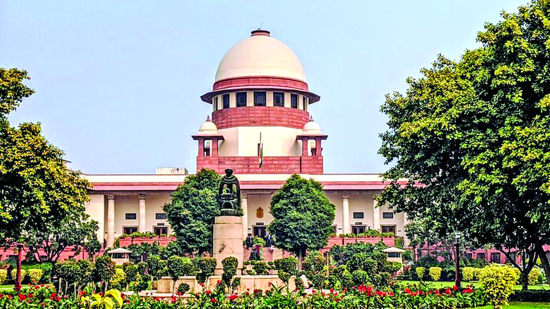Sincere efforts should be made to bring corrupt public servants to book: SC

STATE TIMES NEWS
New Delhi: Observing that sincere efforts should be made to bring corrupt government officials to book, the Supreme Court on Thursday said a public servant can be convicted of the charge of illegal gratification in a corruption case on the basis of circumstantial evidence even when there is no direct oral or documentary proof.
The top court said even if direct evidence of the complainant is not available, owing to death or other reasons, there can be conviction of the public servant under the relevant provisions of law.
“In the event the complainant turns hostile or has died or is unable to let in his evidence during the trial, the demand of illegal gratification can be proved by letting in the evidence of any other witness either orally or documentary evidence or the prosecution can prove the case by circumstantial evidence.
“The trial does not abate nor does it result in an order of acquittal of the public servant,” the bench said.
A five-judge Constitution bench headed by Justice S A Nazeer said complainants as well as the prosecution should make sincere efforts so that corrupt public servants are brought to book and convicted so the administration and governance become unpolluted and free from corruption.
“In order to bring home the guilt of the accused, the prosecution has to first prove the demand of illegal gratification and the subsequent acceptance as a matter of fact. This fact in issue can be either proved by direct evidence, in nature of oral evidence/documentary evidence.
“Further, the proof of demand and acceptance of illegal gratification, can also be proved by circumstantial evidence in the absence of direct, oral or documentary evidence,” the bench also comprising justices B R Gavai, A S Bopanna, V Ramasubramanian and B V Nagarathna, said.
The apex court’s verdict came while examining whether in the absence of direct or primary evidence of demand of bribe, inferential deduction of guilt of a public servant can be drawn based on other evidence.
Justice Nagarathna, while reading out the judgement, also reiterated some previous verdicts of the apex court wherein it had said “corruption is corroding like cancerous lymph nodes the vital veins of the body politics, social fabric of efficiency in the public service and demoralising the honest officers.”
